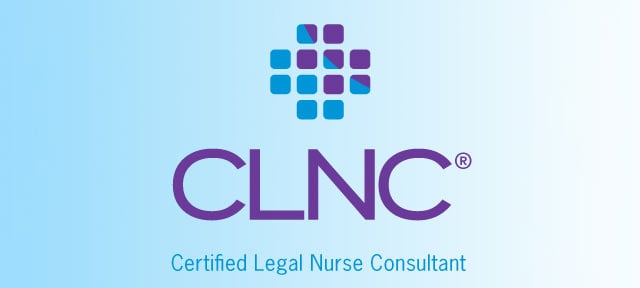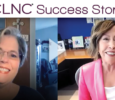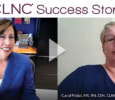I get a lot of email. Too much email some might say. My inbox starts filling up well before LegalNurse.com opens, with internal business. I had no idea how much email employees could generate, correspondence from vendors, email from students and Certified Legal Nurse Consultants who need mentoring and who just want to say hello and share their CLNC® success. Fortunately, I am blessed to be the recipient of professional emails 99% of the time. But the other 1% is what I want to talk about in this blog.
Why is someone communicating to me in all CAPITAL letters or with bad spelling, poor punctuation, rambling styles and with no subject line (Really!). And if that someone is a legal nurse consultant, I worry that they are communicating with their attorney-clients and attorney-prospects, experts and other legal nurse consultants in the same unprofessional way. I have to assume they are. After all, with the possible exception of people with multiple personality disorders (You know who you are, and so do you and you.), most people don’t magically switch styles when they switch email accounts. In fact, some even use the same email account for business and personal – another no-no.
In just three blogs, I’m going to give Certified Legal Nurse Consultants the tips that will guarantee the professionalism of your email communications with your attorney-clients.
Tip #1
Get a real email address. Attorneys communicate with other professionals – attorneys, doctors, engineers, economists, etc. Professionals have email addresses like [email protected] or [email protected]. Those email addresses communicate more professionalism than [email protected] or [email protected].
When you send a business letter you use letterhead stationery and a matching envelope. Think of your email address as your envelope and make it reflect your professionalism. If you have a domain name for your legal nurse consulting business you can easily set up an email account with the hosting provider and have your email address be congruent with your business name. Think [email protected]. That’s called branding and it’s a powerful tool in the right hands.
Tip #2
Use a “Subject:” that makes it clear what the email is about. Many people do not use the “preview” function in their email client which forces them to open the email to see what it’s about. Have you ever opened an email only to find it’s not what you expected or because you couldn’t figure out what it was? I recommend you use a subject that is clear and makes sense, not only today but in a few weeks when you’re searching for an email in a cluttered inbox or “sent” mailbox. If you’re working on a particular case, include the case name somewhere in the subject. If it relates to a meeting, include the date (re: Hawkins case – 10/26 client interview notes) and anything else that will help the recipient decide what priority to assign to reading it.
When someone sends me an email with a bad subject line and I then either reply or forward it, I’ll often correct the subject line by putting my (sensible) subject in front of their (unintelligible) subject. By keeping their subject in the line, they’ll know what the email is about and can delete their subject from further replies, etc. Also, if you change the subject matter of the email, make the appropriate change to the subject line. It only makes sense.
Tip #3
Organize your inbox with folders. Certified Legal Nurse Consultants don’t just keep one general inbox with 547 emails on various subjects. They create subfolders organized by case names or other relevant naming conventions. You do this just like you create paper files in your office. After replying to an email, drag that email into the appropriate folder. That keeps your inbox clear and uncluttered. If you’re waiting for a response, you might keep the original email until you get the response and then file both. Depending upon the communication you can often put a “sent” folder inside each subfolder. Then file the sent email there for easier recall later. This beats searching through a crowded “sent” mailbox and is another reason for using strong subject lines. It makes it easier when searching through those archived messages weeks or months after they’ve been sent or since you last looked at a case.
Tip #4
When you need to communicate a really short message to someone, then do it inside the subject line of the email. End the subject line with “NoMsg” or “EOM” (end of message). This is a wonderful way to communicate a short message to someone. The non-preview people really love this one.
Tip #5
Spend a few minutes figuring out how to turn on the spell-checking function of your particular email client. We use Outlook® and it’s got a pretty good speller. Just about every email client has a spell-checking function either built in or available as an add-on. If yours does not, then compose your email in Word or another word-processing program that has a spell checker and then cut and paste it over to your email. Nothing, and I mean, nothing (except bad grammar) spells unprofessional more than spelling errors. Even my BlackBerry® has a spell-checking feature. This helps prevent minor and major typographical errors (but does not replace proofreading). If you do one thing for your legal nurse consulting career after reading this blog, please let it be this tip.
Success Is Inside!
P.S. Comment and share your tips for professional email communications.









I joined a local writer’s group shortly before I became a CLNC® consultant. There are nurses who write very well, but many are like I was, good at charting but lousy at writing. In the last five years, my writing has improved. This writer’s group has challenged and pushed me in writing endeavors whether it involved my marketing materials, newsletters, attorney letters, and even my success story recently published on the blog.
Also very exciting, the writer’s group challenged the participants to write a short story to be published in the national bestselling series, A Cup of Comfort. The facilitator of the writer’s group (a retired English professor, published multiple times with novels and articles, and freelance editor) had her short story accepted…and mine was, also! To go from charting to getting published was a tremendous accomplishment for me.
One suggestion that I would make for emails (this may be addressed next time in the blog) is for CLNC® consultants to have a “signature” at the end of the email. It is frustrating for me when I have a need to mail an item to a subcontractor and there is no address or contact information in the email and I have to take the time to look it up.
As CLNC® consultants and comrades, sometimes we think that we don’t have to be that professional with each other, only with attorney communications. But this is a mistake. We should be practicing these techniques in every communication so that when it is being sent to an attorney (or horror of horrors to Vickie), we need not be embarrassed for our own self or a fellow CLNC® consultant.
These tips are great Vickie. I didn’t think to use the folder tip until the last case I worked on. The attorney literally sent me everything that he would email and everything that he received on the case clear until it settled. I made a folder in order to keep track of it.
I’m one of those people who’s still learning computers. I’m also antiquated because if I can’t find the sp ck button on a site, I’ll go to my paper dictionary to find the correct spelling & that’s bad, I miss words either from distractions or poor proof reading. (how very unprofessional, thanks Vickie)
I’m now taking my time to proof read & writing in word first, if I can’t find a spell ck button. (actually a suggestion from my husband, 6 months ago)
Please, adhere to Vickie’s “professional wisdom,” I will!
Oh, how professional & eloquent our email will be if we only take the time to find that button or go in Word and cut & paste! Thank you Vickie for caring & sharing that with us!
The email spell check tip is one that should have been obvious. However, I am amazed at the number of emails I receive from professional individuals, including attorneys, containing HORRIFICALLY misspelled words. I wasn’t the best overall student in my class, but misspelled words have always stuck out to me like a sore thumb. Vickie is right! Emails containing misspelled words and/or improper grammatical structure tend to make me think a second time about the professionalism of the individual who prepared and sent the communication.
Personally, I love the automatic spell check feature within my email. However, some of the words we use are foreign to the feature. It is sometimes very funny to see the words that it interprets as errors and the alternative words it suggests for utilization. Therefore, even though I love the spell check feature, I don’t trust it implicitly.